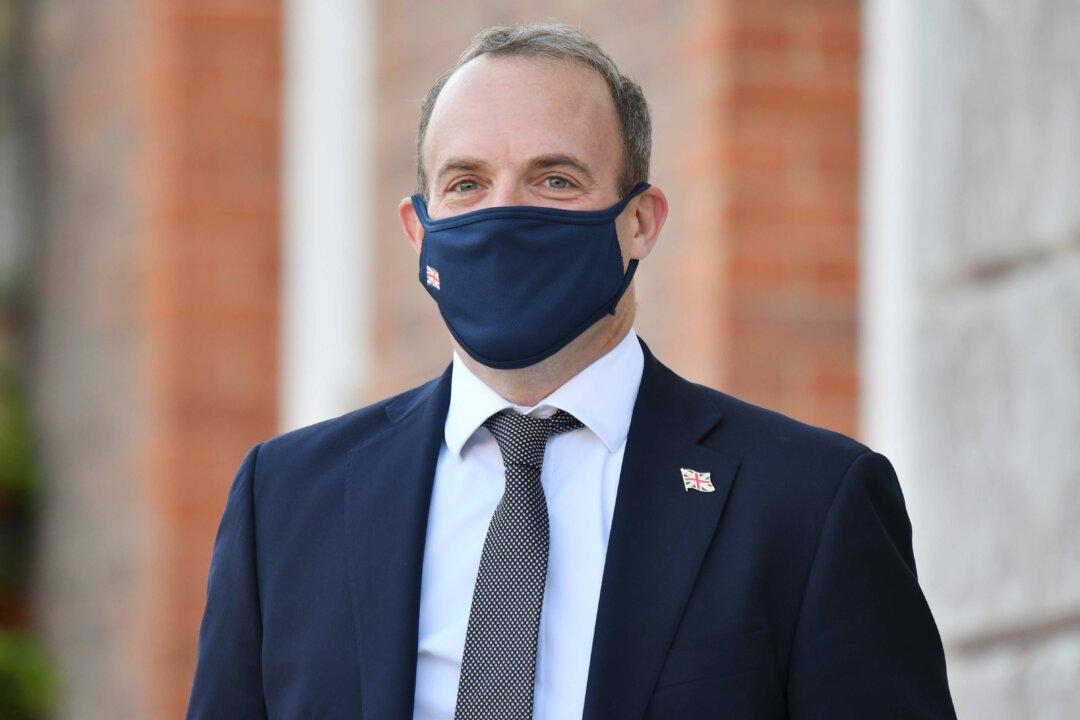The United Kingdom will use “all the tools” at its disposal, including targeted sanctions, to hold Belarus President Alexander Lukashenko and his regime to account, Foreign Secretary Dominic Raab said.
Lukashenko, the authoritarian leader of Belarus, on Wednesday held an unannounced inauguration ceremony to mark the start of his new term, which domestic opponents and some Western countries consider illegitimate.





